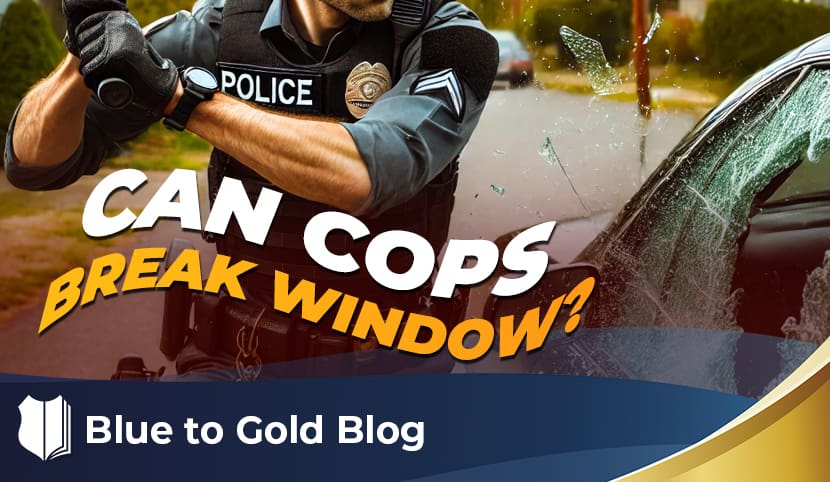All right, can an officer break a window to remove a non-compliant driver? This question comes from an officer in Indiana. First, I want to apologize to this officer. This question was submitted a while ago, and unfortunately, it slipped through the cracks. That’s on me, and I appreciate your patience. I always strive to respond to officers as quickly as possible and be a helpful resource. So, Captain, my apologies.
Now, here’s the situation: locally, officers conducted a legal stop and detected the smell of burnt marijuana. In Indiana, as in many places, burnt marijuana is illegal because it indicates the driver may be impaired, which raises a DUI issue. The subject refused to exit the vehicle, rolled up the windows, and started recording with their phone. A young officer, in response, broke the window and removed the driver from the car. A deputy prosecutor mentioned a Supreme Court case that defined this as passive resistance and argued that this level of force is not permissible for taking someone into custody.
Can I offer some direction on this? Well, first, I need to say that I’m not aware of any case law that explicitly prohibits breaking a window to remove a non-compliant driver. There might be case law out there, and if any of my viewers have information, please share it in the comments. From my perspective, what are the alternatives? If a court were to rule that officers could never break a window to remove a driver, would that create a free pass for individuals? Would we be forced to wait for hours—perhaps even days—while they remain in their car, potentially with enough resources to stay put indefinitely?
For example, if they’re in an RV, could they just sit there, use the shower, and take their time while we wait outside? That scenario doesn’t sound practical or reasonable. While it’s true that using excessive force against a person for passive resistance should be avoided, breaking a window is not force against the person directly; it’s force against the vehicle or container they are in. Officers should use sound judgment and take precautions to avoid causing harm. For example, officers should avoid breaking a window near a person’s face, as this could result in serious injury.
Of course, de-escalation is key. Officers should attempt to calm the situation, give warnings, and buy time to see if the driver will comply. But if it becomes necessary to break the window to safely remove the driver, I believe officers can do so, especially if other de-escalation efforts have failed. The alternative is to let the driver go or continue waiting for an indefinite period, which is neither practical nor safe for law enforcement or the public.
That’s my take on the matter.











